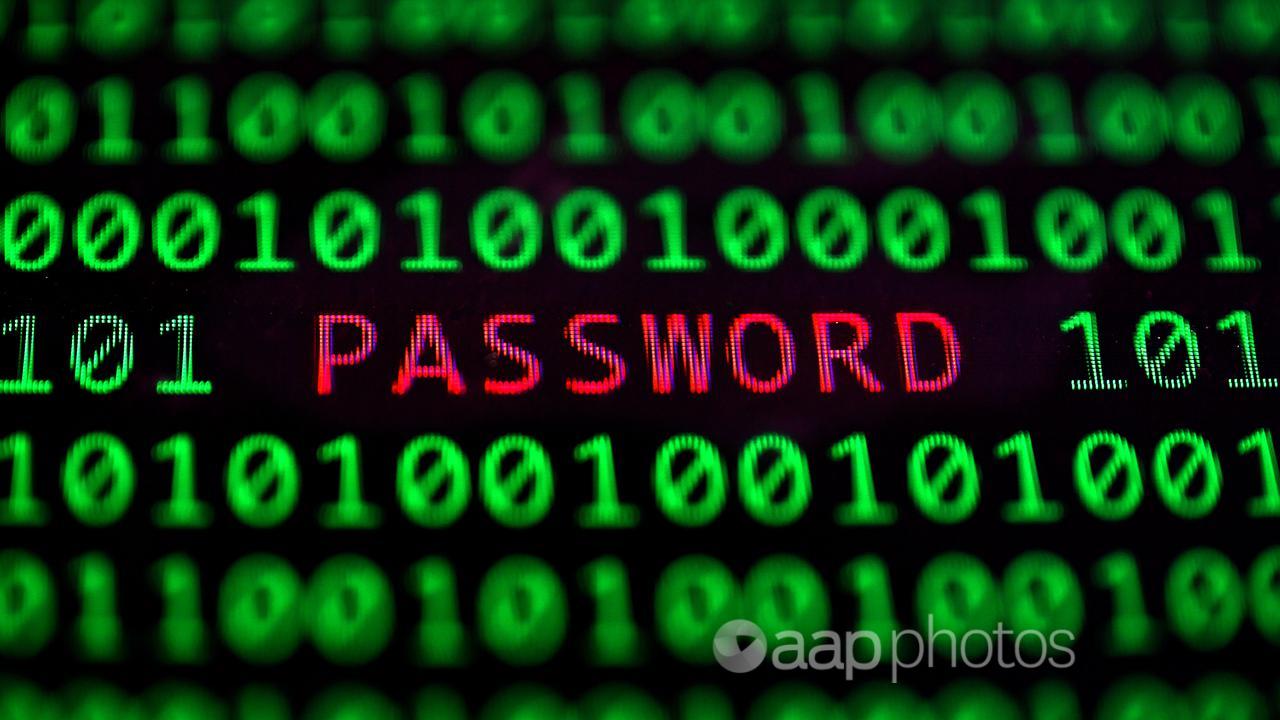A Facebook video implies proposed laws will allow the New Zealand government to control people’s banking and shut off their accounts.
Influencer Chantelle Baker makes a claim in a video posted to her 97,000 Facebook followers on April 7 about New Zealand’s COVID-19 vaccine pass and the Digital Identity Services Trust Framework Bill.
Ms Baker gained notoriety during the parliament protests in Wellington in March for spreading misinformation about police starting a fire among protesters’ tents. She is daughter of Leighton Baker, former leader of the New Conservatives, who was charged over the Wellington protest.
The claim about the Bill, which is at committee stage at the time of writing, is false, Digital Economy and Communications Minister David Clark says. Cyber law experts, including an academic who provided advice to develop the Bill, say there’s nothing in the legislation specifically relating to banking.
Since this article was published, Ms Baker has contacted AAP FactCheck to say her video had been misinterpreted and did not relate to the current banking system. Instead, the entire video referred to a future centralised banking system with digital currency, she said. Ms Baker also clarified that she did not intend to assert that the Bill would allow government control of the future centralised banking system, but rather people feared it would lead to that result.
In the video, Ms Baker outlines a timeline for the government’s discussions around NZ’s COVID vaccination digital pass, then says: “This was going to be a stepping stone and a link to the Digital Identity Trust Framework” (video mark 1min 30sec).
She adds: “The Digital Identity Trust Framework is a really interesting Bill, and it does have a lot of corresponding information in there to peoples’ concerns, and part of it is that it allows the control of our banking system” (video mark 1min 50sec).
Ms Baker also links the Bill to a conspiracy about centralised digital currency and says it “would allow for things such as items to be bought that were government approved”.
She goes to ask: “What would it look like to get government disapproved?”
“They could shut off your banking, like that,” she says, clicking her fingers.
Ms Baker claims it would not have been possible to bring in the Trust Framework Bill unless the digital COVID pass had been introduced first.
Alex Sims, an associate professor at University of Auckland’s Business School, says the proposed legislation aims to create a more efficient and user-friendly system for sharing identity information with companies and other bodies online.
Dr Sims, who took part in industry workshops to develop the Trust Framework, described Ms Baker’s video as “cleverly misleading”.
“There is nothing in the Digital Identity Services Trust Framework Bill relating to banking as such,” she told AAP FactCheck via email.
“The Bill’s purpose is to make life easier for people in New Zealand.”
She says currently people often need to prove who they are and may have to do this continually to different government departments.
“It is a pain to do, i.e., scans of passports, proof of address (which is hopeless and inequitable etc),” Dr Sims said.
“Also it doesn’t work very well as what is required is inconsistent (and you need to do it again and again). Plus there is lots of identity fraud and you are giving up a lot of information, which the recipient organisation does not need.”
She says on top of government-produced identity information such as passports, driver’s licences and birth certificates, the Bill allows organisations to also provide digital identity documentation.
Dr Sims said an authority would monitor the system and accredit the bodies that can grant digital ID documents.
A disclosure statement on the Bill says it will address “inconsistencies and inefficiencies” in how personal and organisational information in a digital identity environment is handled.
Proactively released cabinet papers on the Bill lists the COVID-19 pandemic as highlighting “the importance of trusted digital identity for providing services in situations where face-to-face contact is difficult” (point 7 in the executive summary, page 1 of 15).
In Hansard records of the Bill’s first reading on October 19, 2021, National MP Stuart Smith says people fear the leaking of personal information as much as they do “losing their bank accounts”, however there’s no suggestion it will give government the power to shut accounts.
Mr Clarke’s office told AAP FactCheck in an email that while there was nothing in the Bill specifically relating to banking, “banks are interested in using digital identity services because of their identification requirements for new and existing customers”.
The minister’s office added that “a number of banks were consulted through the development of the Trust Framework” and that it would “not require people to use the digital identity system”.
Wayne Rumbles, who teaches cyber law and security at the University of Waikato, described the Bill as establishing an “accreditation process and standardisation of digital identity providers”.
“I have read through the whole Bill and there is nothing … which would allow the government to disable or restrict access to an individual’s bank account,” he told AAP FactCheck in an email.
“A user can choose not to use services that are covered by the Bill.”
The Verdict
The claim that proposed New Zealand legislation will allow the government to control people’s bank accounts is false. Cyber law experts and NZ’s minister responsible for the Digital Identity Services Trust Framework Bill told AAP FactCheck there is nothing in the legislation specifically relating to banking and its aim is to establish a more efficient and user-friendly system for sharing identity information online.
False – The claim is inaccurate.
* AAP FactCheck is an accredited member of the International Fact-Checking Network. To keep up with our latest fact checks, follow us on Facebook, Twitter and Instagram.
*June 7, 2022 4.53pm: Edit made to include Ms Baker’s full quote, change the wording of the first paragraph and make the addition of the fifth paragraph.
All information, text and images included on the AAP Websites is for personal use only and may not be re-written, copied, re-sold or re-distributed, framed, linked, shared onto social media or otherwise used whether for compensation of any kind or not, unless you have the prior written permission of AAP. For more information, please refer to our standard terms and conditions.


















